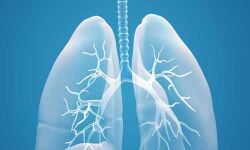- Home
- Medical news & Guidelines
- Anesthesiology
- Cardiology and CTVS
- Critical Care
- Dentistry
- Dermatology
- Diabetes and Endocrinology
- ENT
- Gastroenterology
- Medicine
- Nephrology
- Neurology
- Obstretics-Gynaecology
- Oncology
- Ophthalmology
- Orthopaedics
- Pediatrics-Neonatology
- Psychiatry
- Pulmonology
- Radiology
- Surgery
- Urology
- Laboratory Medicine
- Diet
- Nursing
- Paramedical
- Physiotherapy
- Health news
- Fact Check
- Bone Health Fact Check
- Brain Health Fact Check
- Cancer Related Fact Check
- Child Care Fact Check
- Dental and oral health fact check
- Diabetes and metabolic health fact check
- Diet and Nutrition Fact Check
- Eye and ENT Care Fact Check
- Fitness fact check
- Gut health fact check
- Heart health fact check
- Kidney health fact check
- Medical education fact check
- Men's health fact check
- Respiratory fact check
- Skin and hair care fact check
- Vaccine and Immunization fact check
- Women's health fact check
- AYUSH
- State News
- Andaman and Nicobar Islands
- Andhra Pradesh
- Arunachal Pradesh
- Assam
- Bihar
- Chandigarh
- Chattisgarh
- Dadra and Nagar Haveli
- Daman and Diu
- Delhi
- Goa
- Gujarat
- Haryana
- Himachal Pradesh
- Jammu & Kashmir
- Jharkhand
- Karnataka
- Kerala
- Ladakh
- Lakshadweep
- Madhya Pradesh
- Maharashtra
- Manipur
- Meghalaya
- Mizoram
- Nagaland
- Odisha
- Puducherry
- Punjab
- Rajasthan
- Sikkim
- Tamil Nadu
- Telangana
- Tripura
- Uttar Pradesh
- Uttrakhand
- West Bengal
- Medical Education
- Industry
Floxacin antibiotics may enhance treatment of patients with lung and bladder cancer: Study

UK: Floxacin antibiotics may enhance the treatment of patients with lung and bladder Cancer, finds a new study.The findings of this study were published in Science Translational Medicine.
Due to the development of drug-resistant metastases, lung and bladder malignancies are difficult to treat.
In both in vitro and in vivo models, Chrysostomou et al. revealed that the p90 ribosomal protein S6 kinase 4 (RSK4) is implicated in the development of drug resistance and metastatic invasion. As a result, better treatments that address these two mechanisms are desperately needed to enhance clinical outcomes.
RSK4 has been discovered as a driver of treatment resistance and metastasis in lung and bladder cancer cells by researchers. In a tail vein injection model, silencing this kinase by RNA interference or CRISPR sensitized tumor cells to chemotherapy and inhibited metastasis in vitro and in vivo.
Several floxacin antibiotics were identified as effective RSK4 activation inhibitors in drug screening, and trovafloxacin replicated all effects of RSK4 silencing in vitro and in/ex vivo utilizing lung cancer xenograft and genetically modified mice models, as well as bladder tumor explants. Researchers identified the allosteric binding site and revealed how this compound blocks RSK4 kinase activation by binding to an allosteric site and mimicking a kinase autoinhibitory mechanism involving the RSK4's hydrophobic motif using x-ray structure determination and Markov transient and Deuterium exchange analyses.
Finally, in the big placebo-controlled randomized phase 3 SIGNIFICANT study, patients undergoing chemotherapy and taking preventive levofloxacin had considerably longer long-term overall survival durations. As a result, RSK4 inhibition may be a viable therapeutic approach for treating lung and bladder cancer. This research, along with the discovery that levofloxacin increased patient survival in a big clinical study, shows that floxacins may be repurposed against lung and bladder malignancies just as RSK4.
For further reference log on to:
Chrysostomou S, Roy R, Prischi F, Thamlikitkul L, Chapman KL, Mufti U, Peach R, Ding L, Hancock D, Moore C, Molina-Arcas M, Mauri F, Pinato DJ, Abrahams JM, Ottaviani S, Castellano L, Giamas G, Pascoe J, Moonamale D, Pirrie S, Gaunt C, Billingham L, Steven NM, Cullen M, Hrouda D, Winkler M, Post J, Cohen P, Salpeter SJ, Bar V, Zundelevich A, Golan S, Leibovici D, Lara R, Klug DR, Yaliraki SN, Barahona M, Wang Y, Downward J, Skehel JM, Ali MMU, Seckl MJ, Pardo OE. Repurposed floxacins targeting RSK4 prevent chemoresistance and metastasis in lung and bladder cancer. Sci Transl Med. 2021 Jul 14;13(602):eaba4627. doi: 10.1126/scitranslmed.aba4627. PMID: 34261798; PMCID: PMC7611705.
Medical Dialogues consists of a team of passionate medical/scientific writers, led by doctors and healthcare researchers. Our team efforts to bring you updated and timely news about the important happenings of the medical and healthcare sector. Our editorial team can be reached at editorial@medicaldialogues.in.
Dr Kamal Kant Kohli-MBBS, DTCD- a chest specialist with more than 30 years of practice and a flair for writing clinical articles, Dr Kamal Kant Kohli joined Medical Dialogues as a Chief Editor of Medical News. Besides writing articles, as an editor, he proofreads and verifies all the medical content published on Medical Dialogues including those coming from journals, studies,medical conferences,guidelines etc. Email: drkohli@medicaldialogues.in. Contact no. 011-43720751


